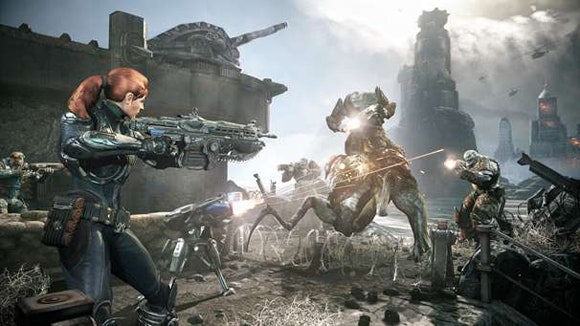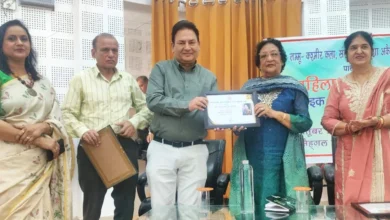On Video Games and Storytelling: An Interview with Tom Bissell

No, you’re not, though I must say that Gears isn’t quite that kind of a game. There are various kinds of storytelling avenues a game can take. Some have multiple, various paths but wind up at the same destination; some plunge straight ahead in a linear path, so that the story is pretty much the same for every person who plays it; and some are fearsomely, awesomely variable.
Like Skyrim? (Skyrim being a wildly popular “open-world” game, in which the player can wander freely rather than having to stick to a predetermined narrative path.)
Indeed. The point is that there’s no such thing, really, as “video-game storytelling.” Different kinds of games have different kinds of storytelling methods. Writing Gears has more in common with action-movie screenwriting than writing something like Skyrim does. But what’s interesting about writing a game like Gears is that there’s just so much procedural dialogue you wind up having to write. By that I mean dialogue that’s totally dependent on what the player’s doing: shooting, killing, blowing stuff up, reloading, taking cover, all of that.
What do you have to write for someone when you’re blowing something up?
Gears is very over the top, very cartoonish. It has a sense of humor about itself, so you’re allowed to have a little bit of fun. If, say, you knock an enemy down on the ground and the enemy’s crawling around, you can then go and pick him up and use him as a shield while other people are shooting at you. One of my favorite lines that we wrote for that particularly grim contingency was “Let’s see how popular you are.” Obviously, that stuff’s hugely fun to write. In the end, we wound up writing something like twelve thousand lines of purely procedural dialogue. At a certain point, when you’re trying to think of literally the forty-seventh different way to say, “I’m reloading,” it gets a little mind-numbing. It’s only when you’re actually playing the game, and hearing this stuff, that you see what variety and a sense of humor does to lighten the experience.
When you are writing prose, you’re very carefully withholding and handing out information, revelations, in a way that you feel is going to be entertaining to the reader. A lot of what you’ve just been saying makes me think you’re sensitive to that with respect to writing a game, as well. But these revelations, in a game, might come about in the course of dozens or hundreds of interactions with this text you’ve written. So how much does that come into play when you are structuring the narrative?
This is the really tricky thing with game writing: you have very limited control over the pace of the player’s experience. A movie or a TV show is designed to be finished in one sitting, so the stories structure themselves around the reasonable expectation that the person watching isn’t going to stop in the middle of it. Games tend to be, what? Seven hours, sometimes even thirty-five hours long? That makes the stories much harder to structure because you can’t control the way the player is going to experience them. A lot of game studios rely on three-act structures, rising tension, character arcs—all these engrained Hollywood story ideas that I’m not convinced have a hell of a lot of applicability to games.
Think about this, though: What other kind of other storytelling experiences does what I describe above remind you of? It reminds me, at least, of how we read books. You read for a while, but then your subway stop comes, and you stop. Or you read before you sleep. Or read in the waiting room at the orthopedist’s. There’s a grab-it-while-you-can story imperative with both books and games. Also, both have to be interesting on a moment-to-moment basis. However, game stories, unlike the kinds of stories you find in books, need to be a lot simpler. Video games generally don’t reward narrative complexity, because most of them are about going somewhere and doing something, and then going to another, similar place and doing a similar thing. In that sense, the story is sort of there to make you forget that what you’re doing is actually incredibly repetitive.
So many games give us the opportunity to play from the perspective of “the good guy”: on the one hand the explicitly violent ones might create a lot of moral ambiguity—that we’re entertained by the carnage—but on the other hand most games provide opportunities for players to experience a really Manichean narrative assumption of good vs. evil. Where do you fall on the John Gardner spectrum of morality in storytelling?
Gardner has a quote in “On Becoming A Novelist” that I love, even if I don’t fully agree with it: the purpose of art, he says, is to show people the proper beliefs and impulses. Or something like that. I think I kind of, sort of, still believe that to some degree. You certainly wouldn’t want to write a book extolling the virtues of serial murder, would you, even if it were really well written.
Well, “Lolita” extols something pretty terrible.
I guess I think the highest purpose of fiction is to show that all people are fundamentally worthy of mercy. Carrying that imperative over into a game like Gears is a harder project, to say the least, because it’s a game about pushing forward and shooting as many living things as possible. Now, these living things are these silly monsters that, you know, aren’t “real,” so the moral considerations are slightly different. Walking the line between honoring the fictional reality of what the game’s characters are going through, which is horrifying, but also allowing the gamer to have fun while doing horrifying things—yeah, that was a bit of a tonal challenge, and it took us a while to get it right. Tone is such a massively important part of how the story stuff in games gets processed. It’s important to get it right, or else everything falls apart.
If combat has any positive attributes, it’s that, for a lot of people, it forms the most intense emotional relationships they will ever have with human beings for the rest of their lives. So I think a shooter, which is what Gears is, can awaken some of those borderline—I don’t want to say positive attributes of combat, but it does touch on some of the exhilaration of combat. I’m not the first person to suggest that, within the horror of combat, there is something beautiful and exhilarating. The reason shooters are so popular, I think, is that we all want to touch that fire. We want to put our hands in just far enough to feel the heat without actually burning ourselves. In that sense, I’m not entirely sure how different playing video games is from playing Cops and Robbers.
Maria Bustillos is a writer living in Los Angeles and a frequent contributor to Page-Turner.
Credit: Microsoft Corporation.
Source link



